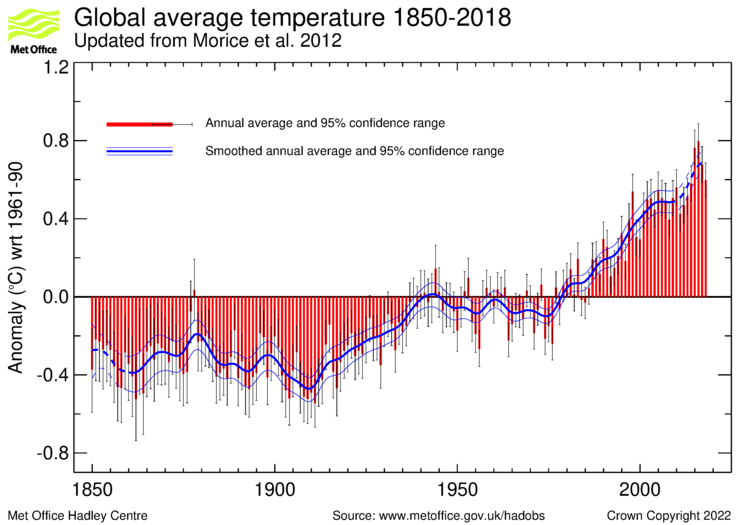- Joined
- Jul 19, 2012
- Messages
- 14,185
- Reaction score
- 8,768
- Location
- Houston
- Gender
- Male
- Political Leaning
- Libertarian
How much can increased atmospheric carbon be expected to warm the earth? If the atmosphere is sensitive, it will heat a lot. If insensitive, new carbon will have limited effect. Climate change proponents argue that if the atmosphere is sensitive, we must phase out use of fossil fuels.
The opponents agree with all of the science laid out here, but think the atmosphere is not sensitive to increased carbon, meaning that carbon emissions will not have a profound impact on water and clouds and the greenhouse effect. Skeptics believe other factors, like the sun and the ocean, are predominant in creation of weather and temperature.
We know from the historical record that “the climate changes all the time, in different and unpredictable” ways.
The earth's temperature fluctuated by 6.5 degrees C over the last 10,000 years, from higher than it is now to lower. During this time man made CO2 played no role in the change.
Historically, our current CO2 levels are at an all time low, 270 to 400 ppm. In the past it has been much higher.
Sea levels have been rising for at least 700 years. Levels have risen 130 meters beginning about 12,000 years ago. Most of this rise was from melting glacial ice.
Temperatures warmed 0.7 degrees in the 20th century. Most of this, 0.5 degrees, occurred in the last quarter of the 20th century. For the past 18 years there has been no increase in temperature. None of this is unusual from an historical perspective.
It is impossible to distinguish temperature changes since 1850 from random fluctuation. That is to say, the temperature has gone up, but this could be due to entirely random changes. It seems to me that assigning a cause to the temperature increase without first eliminating the possibility that it is random fluctuation is foolish. If the temperature increase is due to CO2 one would expect there to be a reasonably good association between CO2 and atmospheric temperature. But there's not. Since 1880 it's clear that CO2 will go up but temperature will go up, down, or remain the same regardless. In other words, the temperatures followed the CO2 for a time, but if temperature changes are random eventually the temperature will go off in a different direction, and, as a matter of fact, it already has.
Plotted on the same scale as an outdoor thermometer, these changes in temperature are hardly even visible. Most people can't even feel a change of 0.7 degrees.
The idea that an accurate assessment of mean global temperature down to the tenth of a degree could be made using data from weather stations using thermometers read to the nearest 0.5 degree and randomly scattered over the earth's land mass with an irregular and incomplete coverage whose make, location, and situations are sometimes changed and not entirely known is a pretty incredible conceit; some would flatly say it's impossible.
https://wattsupwiththat.com/2016/12...ing-rise-of-dangerous-manmade-global-voguing/


